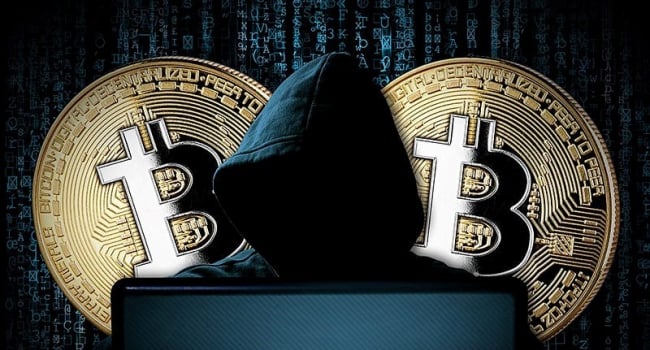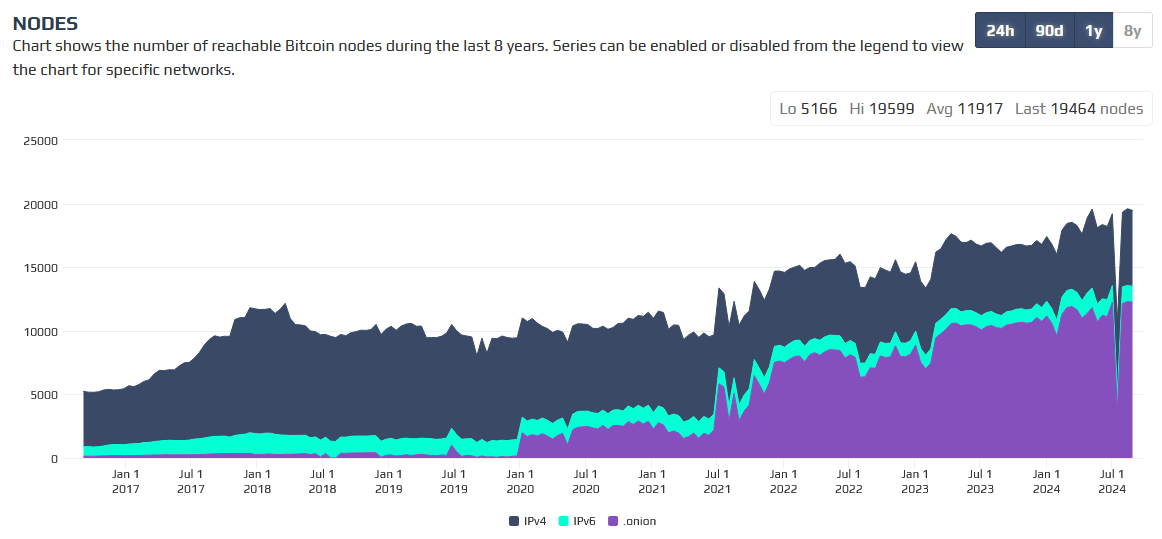 Despite its archaism, Bitcoin cryptocurrency continues to be number 1 for both investors and cryptocurrency miners, so the Bitcoin blockchain remains one of the most important elements of the functioning of the entire crypto world. Along with the growing popularity of cryptocurrencies and BTC itself, the number of enabled Bitcoin nodes (servers with enabled and synchronized Bitcoin Core) continues to increase. Today, there are more than 19 thousand such servers around the world. And what is most interesting is that due to the increasingly close attention of the state to Bitcoin owners, 63% of all enabled Bitcoin Node hide their true location using TOR Project proxy server technology.
Despite its archaism, Bitcoin cryptocurrency continues to be number 1 for both investors and cryptocurrency miners, so the Bitcoin blockchain remains one of the most important elements of the functioning of the entire crypto world. Along with the growing popularity of cryptocurrencies and BTC itself, the number of enabled Bitcoin nodes (servers with enabled and synchronized Bitcoin Core) continues to increase. Today, there are more than 19 thousand such servers around the world. And what is most interesting is that due to the increasingly close attention of the state to Bitcoin owners, 63% of all enabled Bitcoin Node hide their true location using TOR Project proxy server technology.
If in 2019 there were less than 2% of such hidden nodes, then starting from 2020, when the practice of identity verification on crypto exchanges (KYC) at the request of various government agencies began to appear everywhere, the number of BTC servers connected via TOR became many times more, reaching 50% by the end of 2020.
And as you may have guessed, the number of people wishing to hide their involvement in owning Bitcoins is growing every year. And the current political situation only contributes to this. Because leading crypto exchanges block cryptocurrency on the basis of nationality. States maintain numerous blacklists of cryptocurrency owners, which can include any citizen who does not please the current political regime.

States cannot completely block your bitcoins, but can only create difficulties with their exchange by marking them as dirty (sanctioned) and complicate their transfer due to the support of sanctions by mining pools.
Data with statistics on the work of bitcoin nodes are taken from the BitNodes.io website
But with tokens in the form of stablecoins (USDT, USDC), the situation is the opposite, since the blocking of wallets with USDT is already taking on an industrial scale. So, for example, literally at the end of 2022, 435 million USDT were blocked in the Ethereum network, and at the moment there are already 1 billion 227 million digital dollars. In this case, USDT remains in your wallet, but the function of transferring them to another wallet will be blocked. And everyone around will know that your wallet is on the blacklist and will in every possible way avoid dealing with you if you want to use other tokens from the same address.
Conclusion: If you own bitcoins or mine them in Russia, Belarus, Iran, China, Venezuela and other countries that have tense relations with the United States and Western European countries, we recommend that you also use the TOR network to operate your Bitcoin servers and other cryptocurrencies, in particular Ethereum, Tron, Solana, Ton, in order to avoid possible blocking on exchanges when making a deposit or other restrictions on using your cryptocurrency around the world. Moreover, the Bitcoin Core client itself supports the ability to work through anonymous networks using the latest protocol version 3.









